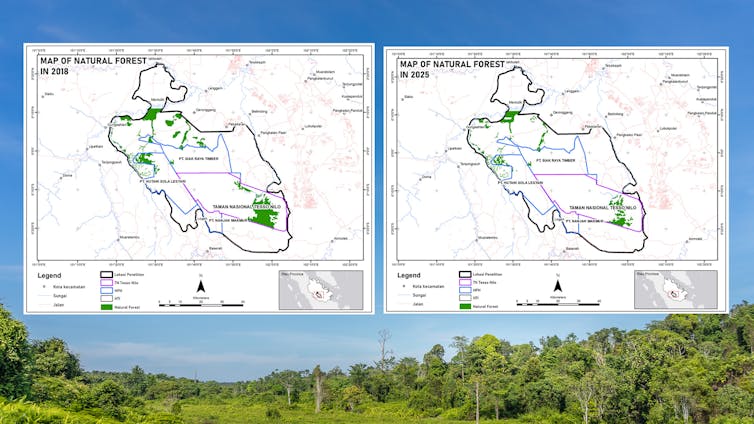Poland's Largest Hybrid Battery Energy Storage System Commence Full-scale Technology Demonstration
- Written by ACN Newswire - Press Releases
|
|
| Figure 1. The hybrid BESS building installed next to the Bystra Wind Farm |
The project is supported by the Ministry of Climate of the Republic of Poland and has been carried out in cooperation with Polish project partner companies: Polskie Sieci Elektroenergetyczne S.A. (PSE), Energa Operator S.A. (EOP) and Energa OZE S.A. (EOZE). The project aims to contribute to further integration of renewable energy in Poland by achieving secure power grid operation while minimizing investment costs for power transmission equipment at the same time. This is the next step following the introduction of a Special Protection Scheme (SPS) system, which entered into operation in October 2019, increasing the security of grid and protecting power system.
This hybrid BESS is Poland's largest-scale battery energy storage system, which combines high-output lithium-ion batteries with high-capacity lead-acid storage batteries, a combination to obtain high performance at low cost. The test operation will validate and prove the effectiveness of the functionality for alleviating short-term fluctuations in wind power generation and for providing necessary reserve power for adjusting demand-supply balance (load balancing).
Demonstration Project Overview
In response to the EU directives, Poland is planning to increase the renewable energy usage and is aiming to introduce large amounts of wind power generation, particularly in the country's northern regions, which are fortunate in terms of wind conditions. At the same time, there is a capacity limitation of transmission lines to facilitate the introduction of large amounts of wind power generation, and the country's pumped-storage hydroelectric power plants - which are used for load balancing - may be insufficient. Along with the introduction of large amounts of wind power generation, the risk of the grid destabilization and the shortage of load balancing capabilities become an issue, generating a need for a system that will stabilize the power grid while at the same time suppressing economic burden and enabling the introduction of large amounts of wind power generation and other renewable energies.
With the above background, in March 2017, NEDO concluded a Memorandum of Understanding (MOU) with the Ministry of Energy in Poland (currently the Ministry of Climate) for "The Demonstration Project for Applying Special Protection Scheme in Poland" intended to enable the expansion of renewable energy in Poland1. At the same time, three contractors chosen for the project implementation by NEDO, namely Hitachi, Showa Denko Materials and SMBC, conducted on-site surveys and designed, manufactured, transported, and installed equipment, and commenced its test operation in cooperation with PSE (the transmission system operator in Poland), EOP (a power distribution system operator in northern Poland) and EOZE (a power generation company in Poland). These efforts led to the start of the demonstration operation of the SPS, a power grid protection system, on October 1, 20192.
Subsequently, NEDO, the above mentioned contractors, and the cooperating companies also completed the installation of the hybrid battery energy storage system (BESS) at the Bystra Wind Farm in northern Poland and commenced full-scale demonstration operation on Sep. 25.
The hybrid BESS introduced in this demonstration project consists of high-output lithium-ion batteries (1 MW-0.47 MWh) and high-capacity lead-acid storage batteries (5 MW-26.9 MWh) manufactured by Showa Denko Materials, the BESS-DCS (Distribution Control System) manufactured by Hitachi, which allows hybrid control of these two types of storage batteries, and the PCS (Power Conversion System), a 6 MW power converter manufactured by Hitachi ABB Power Grids Ltd. The system is the largest-scale storage battery system in Poland, offering a high level of performance at low cost.
With the previously introduced SPS, PSE will control the hybrid BESS, operating it as a source of reserve power to adjust the demand-supply balance during normal operation and the BESS operator will be able to locally alleviate the effects of short-term fluctuations on the Bystra wind farm. The system will also be used to solve issues with transmission and high voltage distribution line overloads during a power grid failure. This will allow wind power to be used with maximum efficiency. In this demonstration project, NEDO and its partners will try to verify the effectiveness of various system functions, and contribute to increasing the ratio of wind energy and other renewable energy sources in Poland.
At the same time, Hitachi, Showa Denko Materials, and SMBC will work together to develop business models in consideration of the possibility for wide-deployment of such systems and explore their finance schemes.
For the full press release, visit http://www.hitachi.com/New/cnews/month/2020/10/201002.html.
About Hitachi, Ltd.
Hitachi, Ltd. (TSE: 6501), headquartered in Tokyo, Japan, is focusing on Social Innovation Business that combines information technology (IT), operational technology (OT) and products. The company's consolidated revenues for fiscal 2019 (ended March 31, 2020) totaled 8,767.2 billion yen ($80.4 billion), and the number of employees was approximately 301,000 worldwide. Hitachi delivers digital solutions utilizing Lumada in five sectors including Mobility, Smart Life, Industry, Energy and IT, to increase social, environmental and economic values of its customers. For more information on Hitachi, please visit the company's website at https://www.hitachi.com.
Copyright 2020 JCN Newswire. All rights reserved. www.jcnnewswire.com
Authors: ACN Newswire - Press Releases
Read more //?#






